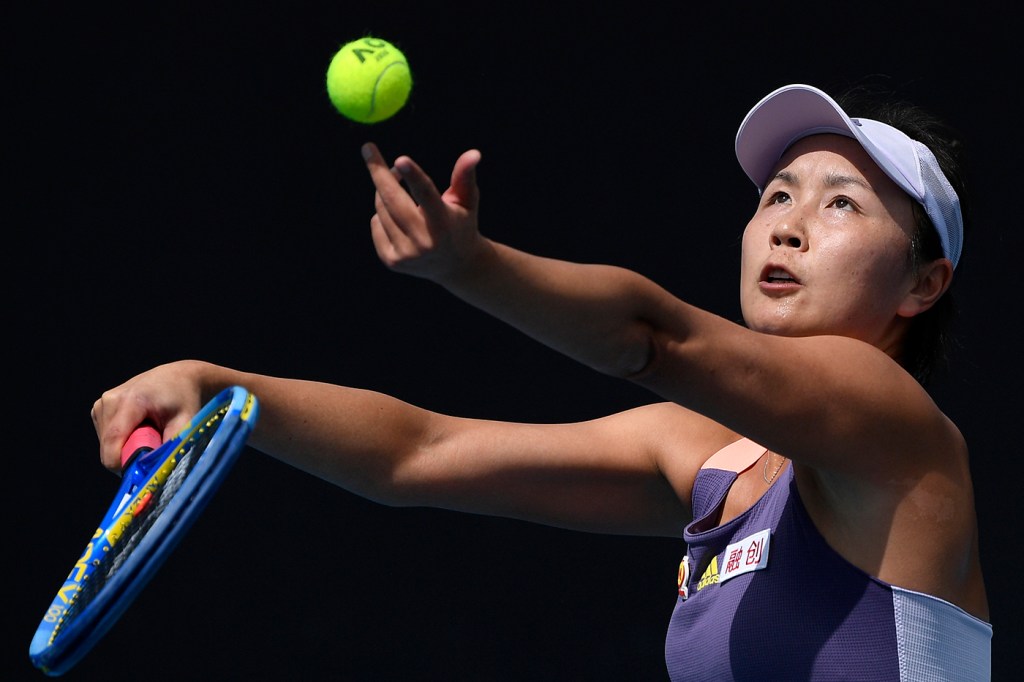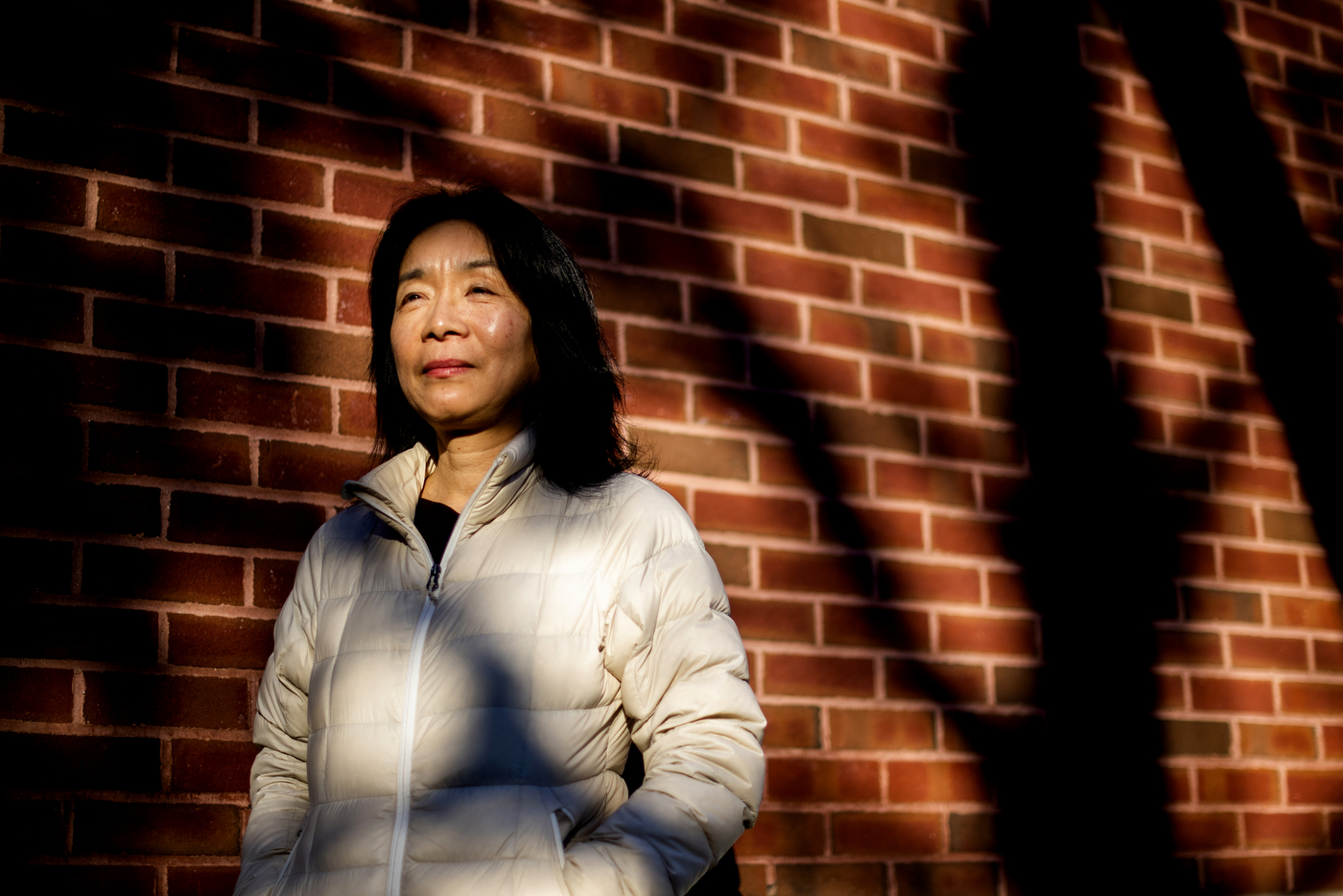Peng Shuai and the obstacles facing China’s growing #MeToo movement

International concern for Peng Shuai has been building for weeks, ever since the Chinese tennis star accused a high-ranking Communist Party official of sexually assaulting her.
The allegations first surfaced on Weibo, a social media platform similar to Twitter used in China, on Nov. 2. Twenty minutes after she posted her account, authorities took it down, scrubbing any mention of the tennis player across all media in China. Though she’d been seen on a Zoom call with the International Olympic Committee recently, no one has been able to independently verify her whereabouts, or confirm if she is safe, since making the allegations.
Peng isn’t the only high-profile woman to be censored by the Chinese government in recent months. Prominent Chinese feminist Zhou Xiaoxuan, who’s been at the forefront of the nation’s growing #MeToo movement, has also been subject to blanket censorship after she publicly alleged that a famous Chinese television host had forcibly kissed and groped her in 2014.

Hua Dong, senior academic specialist in Chinese at Northeastern University. Photo by Matthew Modoono/Northeastern University
The growing crackdown on #MeToo in China is yet another example of how progressive forces are clashing with the country’s authoritarian governance, where narratives around social issues are carefully filtered, and state propaganda is rampant, says Hua Dong, senior academic specialist in Chinese and coordinator of the Chinese program at Northeastern.
“The government is trying to represent itself to the people in a very different image than it [represents] to the international world,” Dong says.
A deeply patriarchal society for millennia, China’s slide back toward authoritarian control and censorship—a direct result of President Xi Jinping’s rise to power—has in many ways stymied social progress, Dong says. Sex education remains largely absent, and sex, itself, is still deeply taboo—in schools, in family life, and in the workplace.
“It’s the patriarchal structure of the society that hasn’t been dealt with face-on,” Dong says. “But that doesn’t mean that Chinese feminism hasn’t existed since the #MeToo movement, and well before.”
Dong credits #MeToo’s progress in China with the fact that Chinese discourse around women’s rights is relatively politically palatable because—until those within the movement called out prominent men in government, or with strong government ties—it didn’t represent an obvious threat to state power. But as more victims who speak up are censored, the government’s credibility with its own people will shrink further, she says.
China’s strategy of digital censorship has been around for decades, dating all the way back to the launch of the so-called Golden Shield Project in 2000. But with advancements in artificial intelligence, President Xi, who also serves as general secretary of the Communist Party, has aggressively looked to build and implement an all-seeing digital surveillance system, an unprecedented project with frightening implications for social life.
And China’s censorship in many ways works to keep these scandals hushed up, at least at home. As a result, many people living in China are simply unaware of what’s going on, and those who are are afraid to talk about it.
“When you hear about these kinds of scandals involving high-level officials, your instinct is fear,” Dong says. “No one dares to discuss it. When you do, everything is reduced to code words and euphemism.”
The international pressure on China to answer for Peng’s disappearance has already led to ruptures in China’s business dealings. The Women’s Tennis Association announced earlier this month that it’s pulling out of the country, suspending all tournaments. Before Peng went missing, international tensions were already high amid an ongoing boycott movement of the 2022 Beijing Winter Olympics, led by the U.S., the U.K., and Canada, among others.
“In good conscience, I don’t see how I can ask our athletes to compete there when Peng Shuai is not allowed to communicate freely and has seemingly been pressured to contradict her allegation of sexual assault,” Steve Simon, WTA CEO and chair, said recently.
Assuming Peng is safe but under close watch by authorities, Dong foresees Peng returning to professional tennis eventually, but on the condition that she continues to keep quiet.
“I’m not really optimistic about her coming out and explaining in detail what has happened,” she says.
For media inquiries, please contact media@northeastern.edu.





